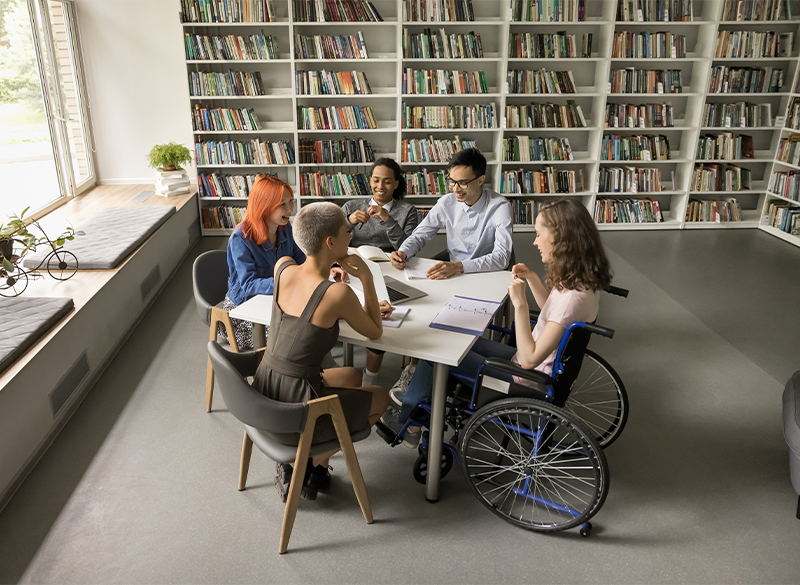"December 3: International Day of Persons with Disabilities – Leveraging Artificial Intelligence to Facilitate Education for Visually Impaired Students"

The International Day of Persons with Disabilities, observed annually on December 3, aims to raise awareness of the challenges faced by individuals with disabilities and to promote sustainable solutions for inclusivity. Highlighting the importance of such solutions, Prof. Dr. Feryal Subaşı emphasized the role of artificial intelligence (AI) in creating applications that support learning for visually impaired students. She stressed the need to harness these technologies to enhance educational accessibility.
Prof. Dr. Feryal Subaşı, Coordinator of the Advisory and Coordination Unit for Students with Disabilities at Yeditepe University, shared insights on the International Day of Persons with Disabilities.
Low Employment Rates for People with Disabilities
Employment is a critical indicator of an individual's ability to participate equally in social life, noted Prof. Dr. Subaşı. She stated, "When a person with a disability secures a job, they gain opportunities for full participation in social life, access to social rights, and the ability to lead a more active lifestyle. Employment, accessibility, participation, and educational outcomes are fundamental indicators of inclusivity and accessibility in any society."
Citing statistics, Prof. Dr. Subaşı explained:
"While the employment rate for people with disabilities in European Union member states is around 50%, it stands at just 22.1% in Turkey. Efforts are being made within the framework of laws and regulations to enhance employment opportunities for individuals with disabilities and ensure equal access to the job market. However, employment rates drop to as low as 10% for individuals with severe or intellectual disabilities. A rights-based approach must focus on increasing and diversifying opportunities for individuals with disabilities in the workforce.
The rapid advancements in information and technology today present unique opportunities for people with disabilities, especially in education and employment. These advancements can enable individuals with disabilities to access materials and resources under conditions equivalent to their non-disabled peers."
Overcoming Barriers in Mathematics with AI
Discussing the innovative initiatives at Yeditepe University to support students with disabilities, Prof. Dr. Subaşı said:
"Mathematics and physics are disciplines often perceived as challenging and requiring specialized skills due to their reliance on shapes and graphs. Consequently, visually impaired students tend to avoid these fields. However, with accessible materials and technological support, these barriers can be overcome.
At Yeditepe University, we have developed a mentorship system tailored to the needs of students with disabilities, leveraging expert consultations and inter-university knowledge exchange. By conducting needs assessments in collaboration with faculty from the Mathematics and Physics departments, we addressed specific challenges these students face. With solutions provided by our Computer Engineering department, we utilized artificial intelligence to tackle analytically complex topics that complicate teaching and learning in mathematics.
As a result, AI has been actively integrated to enable visually impaired students to follow mathematics and physics courses more effectively. Additionally, we developed innovative educational materials tailored for visually impaired students to enhance their learning experience and support their academic journey."